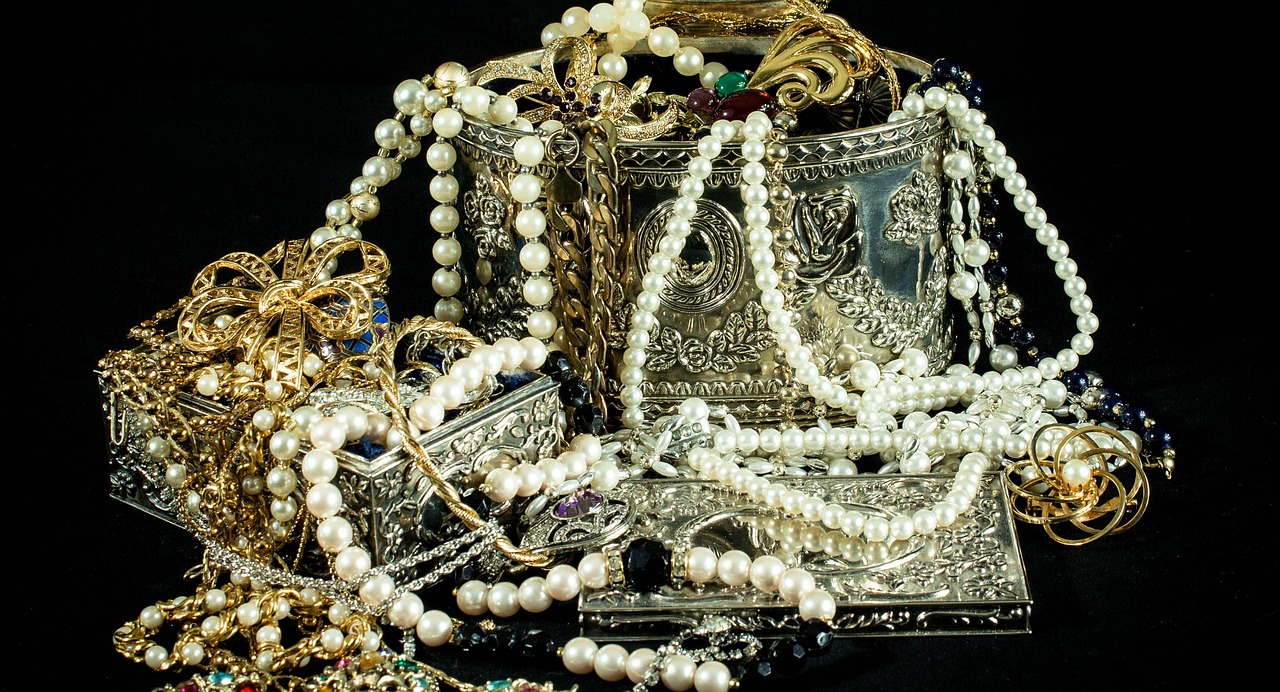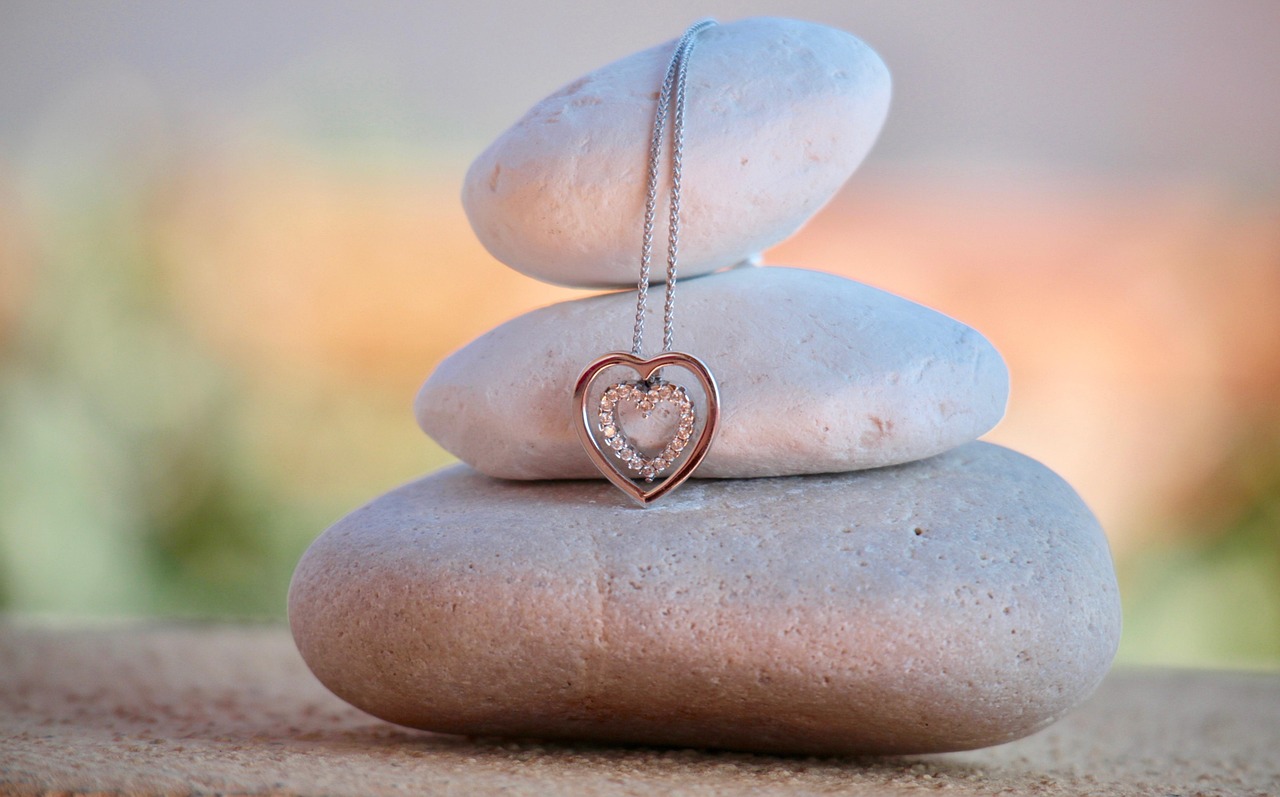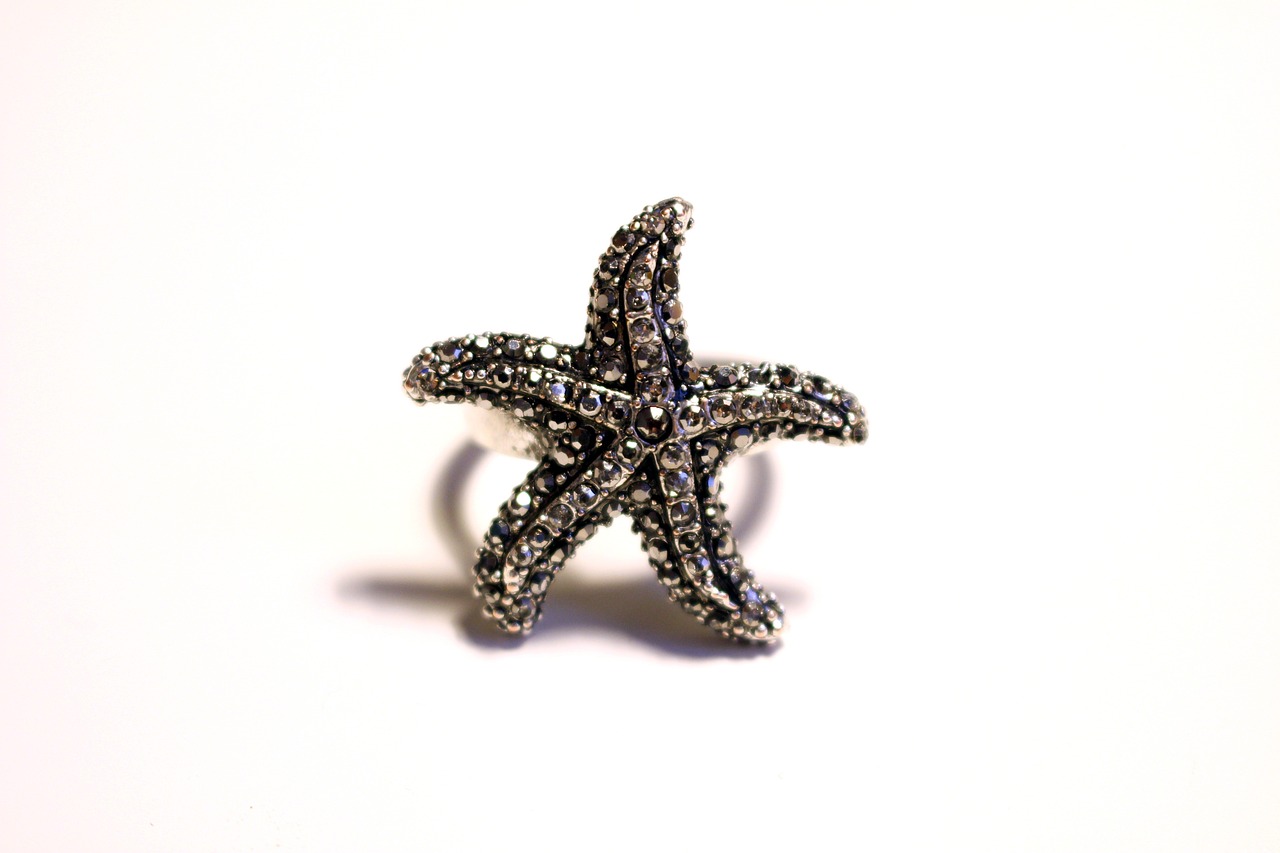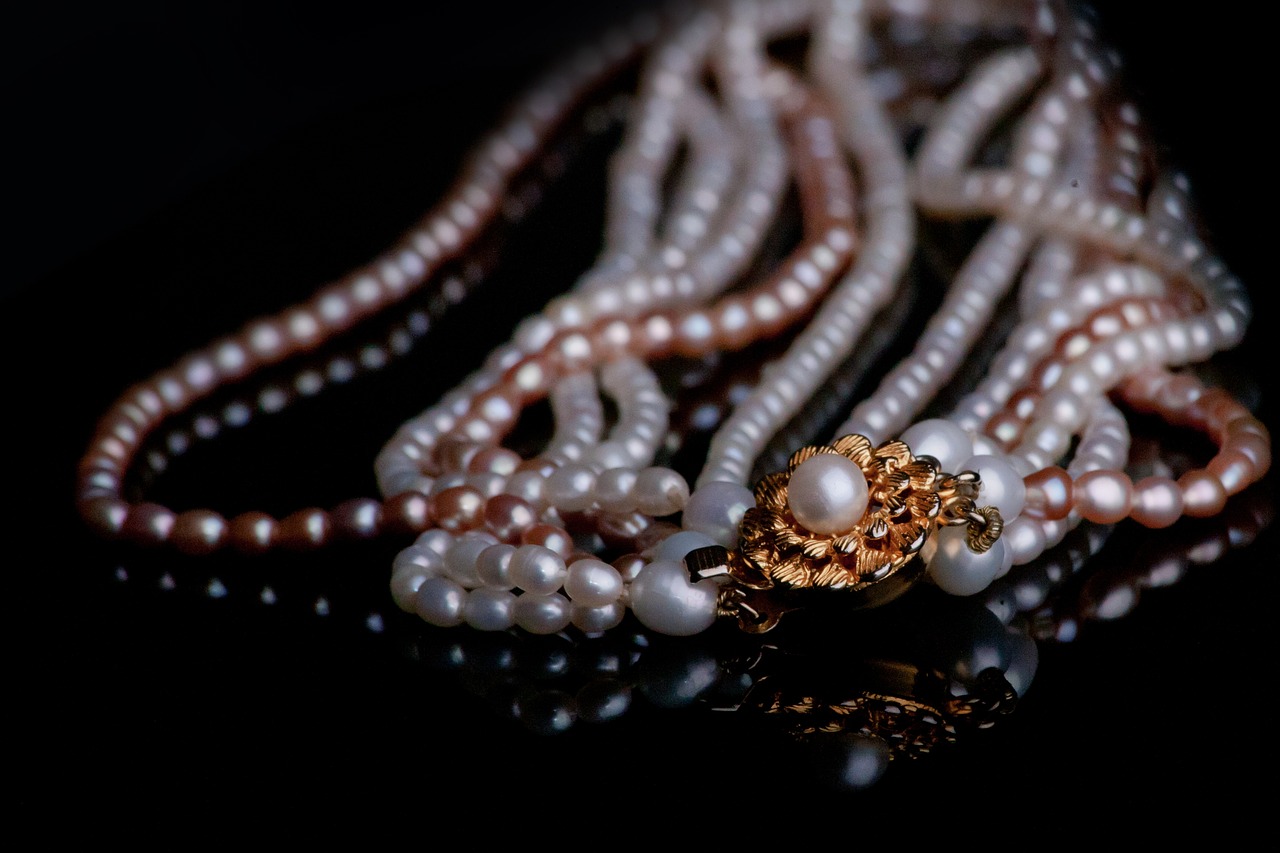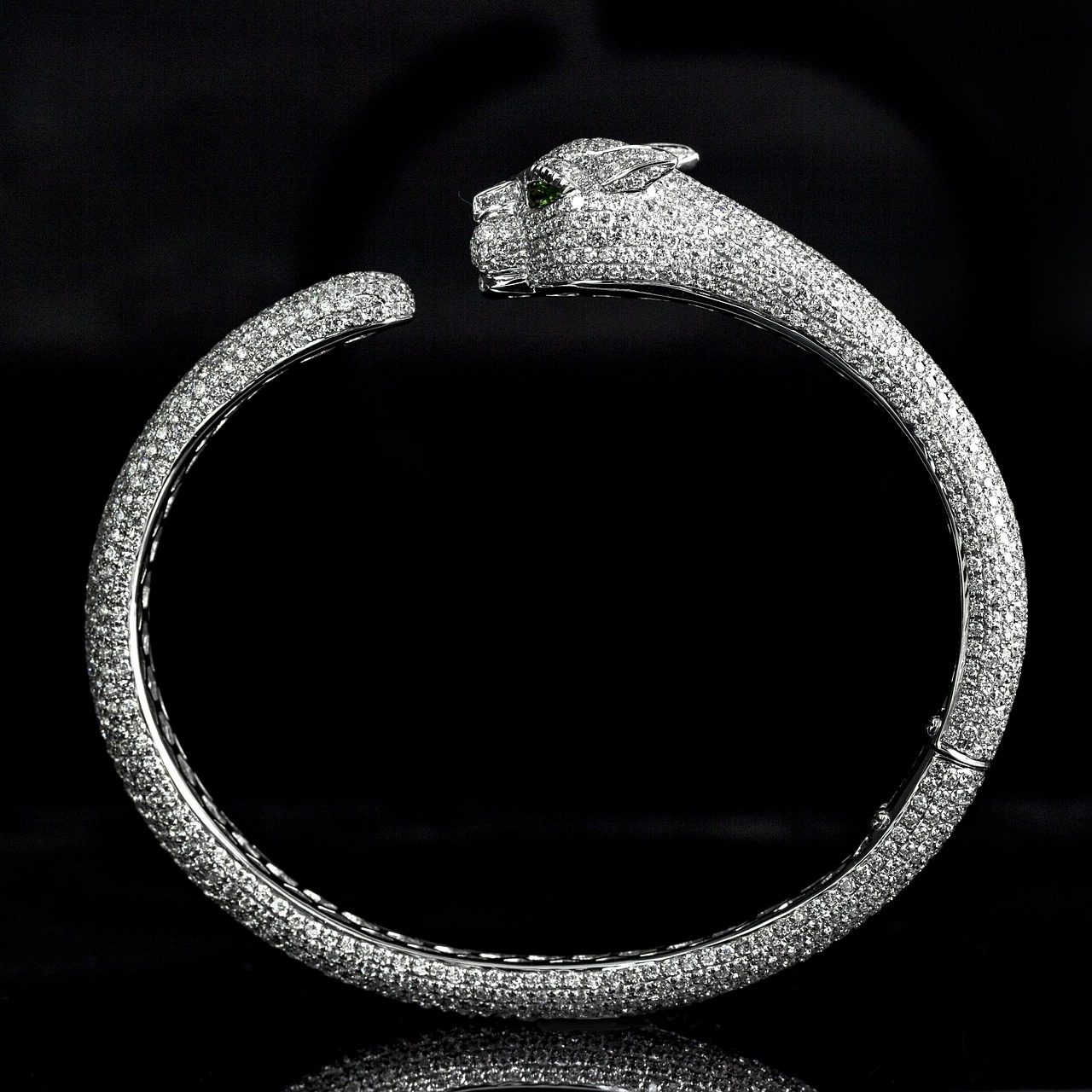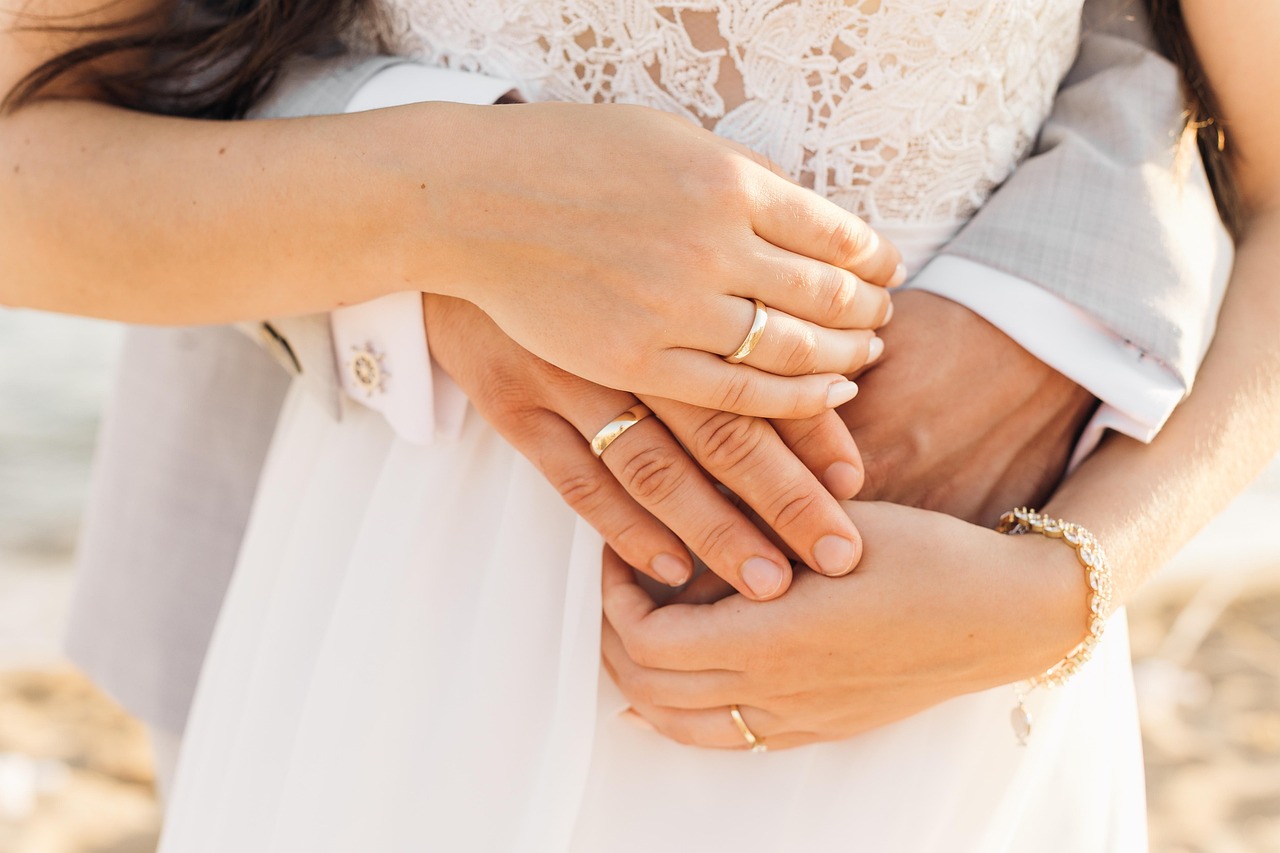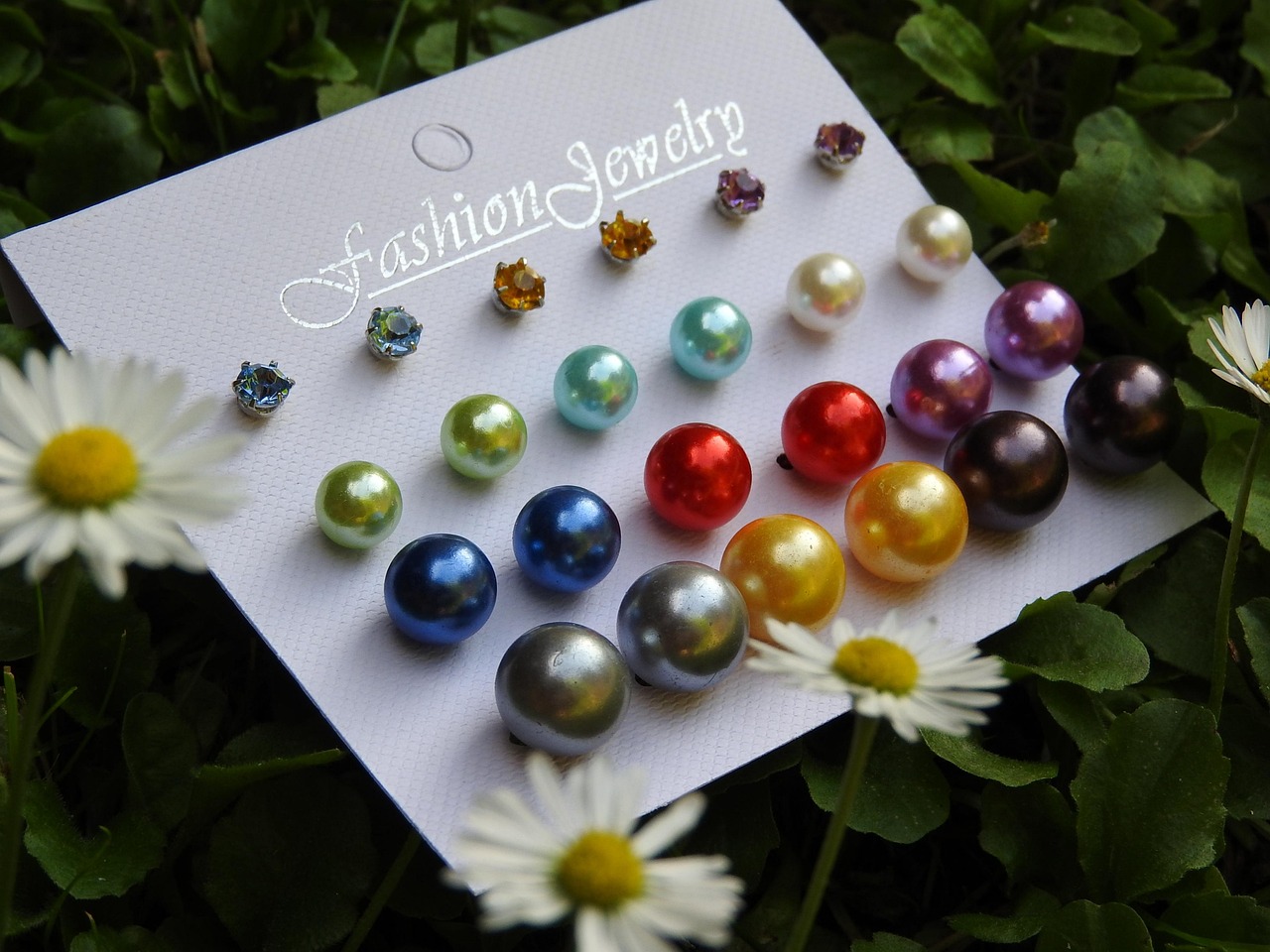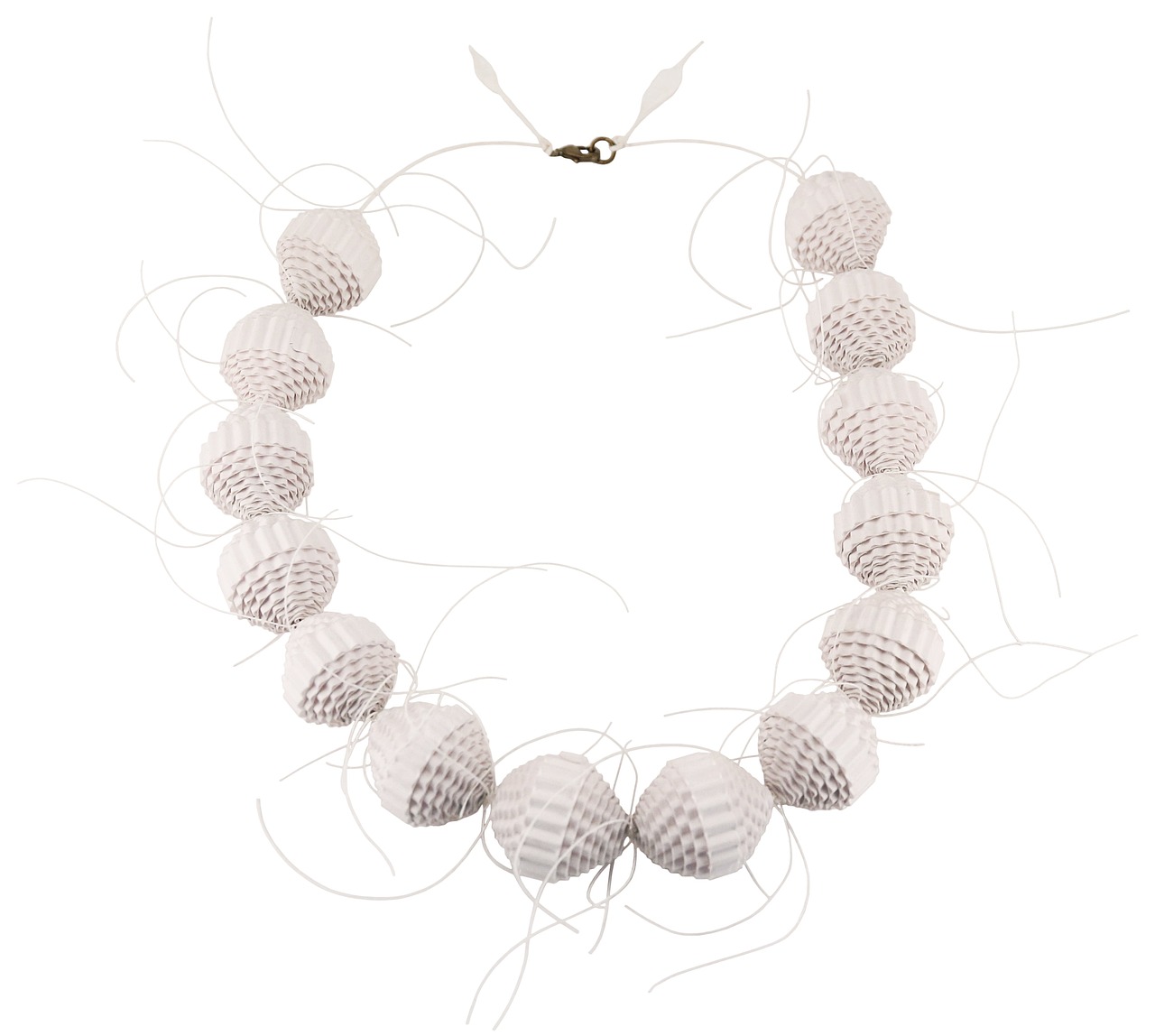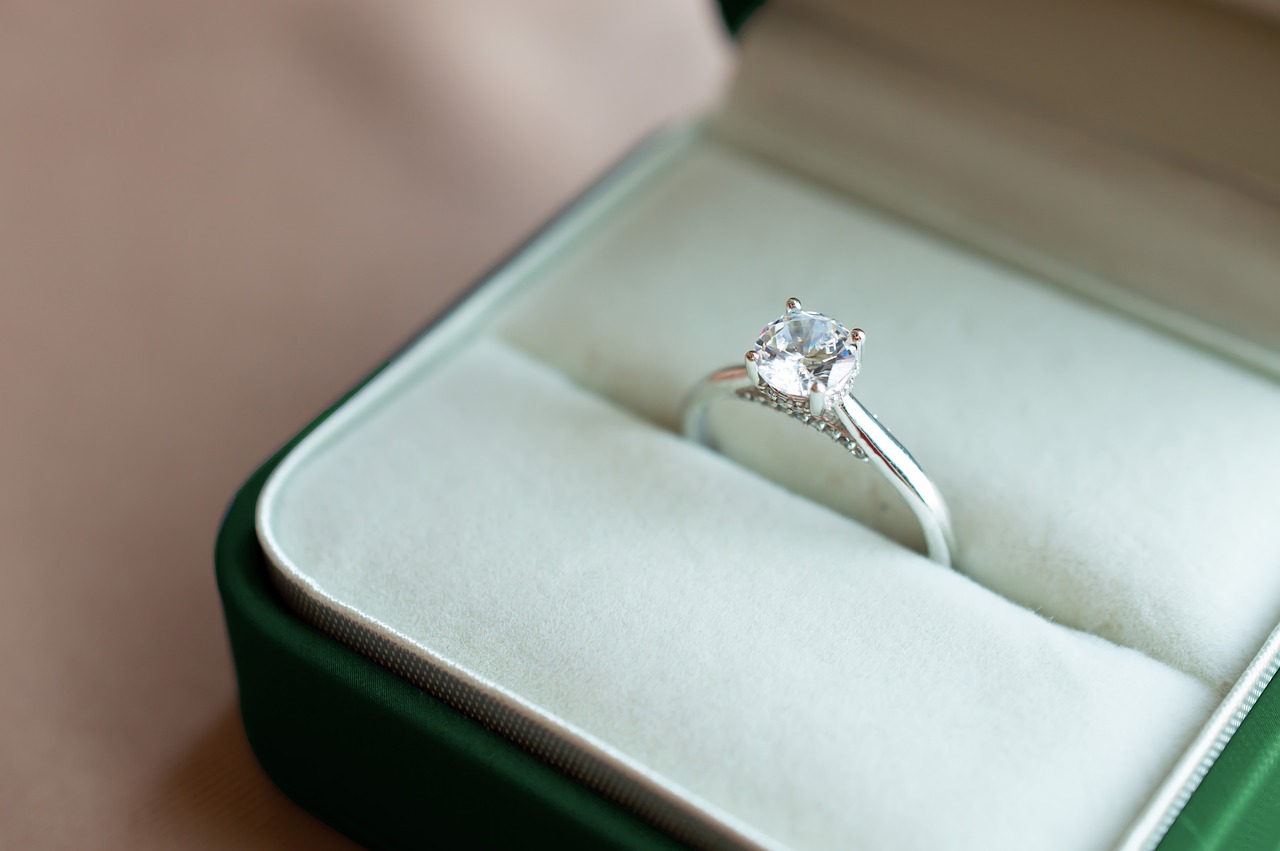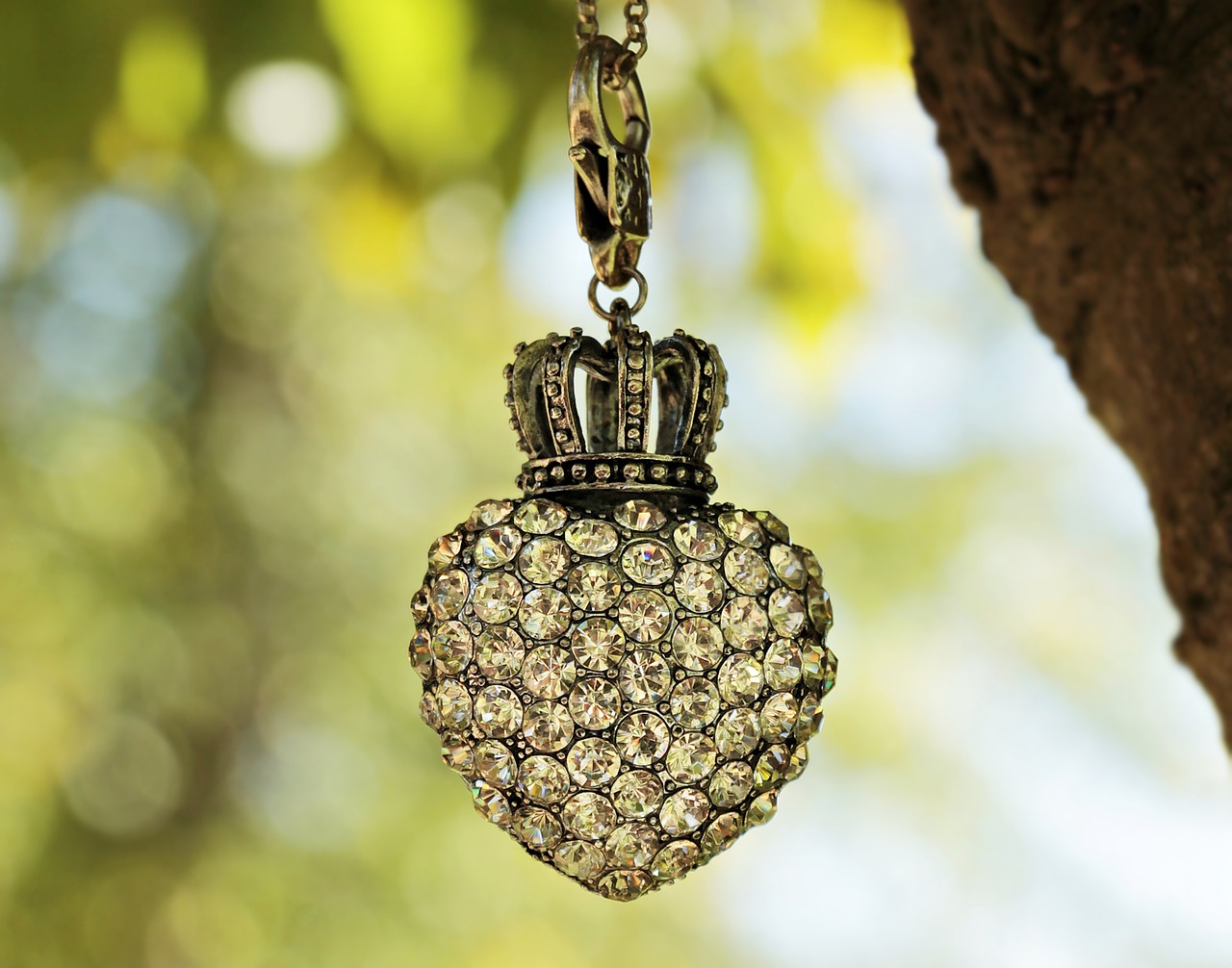This article delves into the profound spiritual significance of cross necklaces, tracing their historical roots and exploring their resonance across various faiths and personal beliefs. Cross necklaces are not merely decorative pieces; they embody deep meanings that connect wearers to their spirituality, heritage, and community.
Cross necklaces symbolize faith, redemption, and a connection to the divine, transcending cultural boundaries. For many, they serve as a daily reminder of their beliefs and the personal journey of faith they navigate. The cross represents not just a religious icon but also a powerful emblem of hope and love.
The evolution of cross necklaces mirrors the changing landscapes of religious practices and cultural interpretations. Initially, the cross was a symbol of execution in ancient Rome but transformed into a beacon of faith and salvation with the rise of Christianity. Understanding this historical journey enriches our appreciation for their significance in contemporary spirituality.
The cross has roots that predate Christianity, appearing in various ancient cultures. In these contexts, it often symbolized life, death, and rebirth. For example, ancient Egyptian hieroglyphs depicted crosses representing the union of opposites, highlighting its universal symbolism.
Before the advent of Christianity, numerous cultures utilized cross symbols to convey ideas of cosmic balance, fertility, and protection. This historical context adds depth to our understanding of the cross’s spiritual relevance today, showcasing its role as a symbol of interconnectedness across diverse civilizations.
With the emergence of Christianity, the cross underwent a profound transformation, evolving into a symbol of salvation and hope. This shift marked a significant milestone in its meaning, leading to its widespread adoption in jewelry and personal adornment.
Today, cross necklaces are worn for various reasons, ranging from expressions of faith to fashionable statements. Their meanings can vary greatly, depending on personal beliefs and cultural backgrounds. For some, it is a cherished heirloom; for others, a trendy accessory.
Cross necklaces come in a multitude of styles, each carrying unique meanings. Understanding these differences can help individuals select a piece that resonates with their spiritual journey.
Traditional Christian crosses, such as the Latin and Greek crosses, embody specific theological beliefs. Each design reflects different aspects of the Christian faith, appealing to a diverse range of followers.
While some crosses are deeply rooted in religious significance, others serve primarily as aesthetic accessories. Recognizing the distinction between these types can guide individuals in choosing pieces that align with their intentions.
Cross necklaces hold different meanings across various faith traditions, from Christianity to other spiritual practices. Understanding these distinctions can foster a deeper appreciation for their significance.
In Christianity, the cross represents the ultimate sacrifice of Jesus Christ. Wearing a cross necklace often signifies a personal commitment to faith and serves as a reminder of divine love and grace.
Other religions, such as Hinduism and Buddhism, incorporate cross-like symbols that carry different meanings. Exploring these interpretations highlights the cross’s universal appeal and the shared spiritual themes that transcend individual faiths.
Wearing a cross necklace can serve as a daily reminder of one’s spiritual commitments, enhancing personal faith and fostering a deeper connection to one’s beliefs. This practice encourages wearers to reflect on their spiritual journeys throughout the day.
Cross necklaces can act as tangible symbols of faith, inspiring wearers to engage in positive actions and thoughtful reflection. This daily reminder can strengthen personal beliefs and encourage a more mindful approach to life.
Wearing a cross necklace can also foster connections within faith communities. Shared symbols often create bonds among individuals, reinforcing a sense of belonging and shared beliefs.
Selecting a cross necklace involves personal reflection and consideration of its symbolism. Understanding what resonates with you can guide your choice and enhance its significance in your life.
The materials and designs of cross necklaces can influence their spiritual meaning. Whether opting for gold, silver, or more contemporary materials, considering these elements can help individuals find pieces that align with their values.
Choosing a cross necklace should involve personal reflection on its meaning. Understanding what the cross represents to you can enhance its significance and role in your spiritual journey.
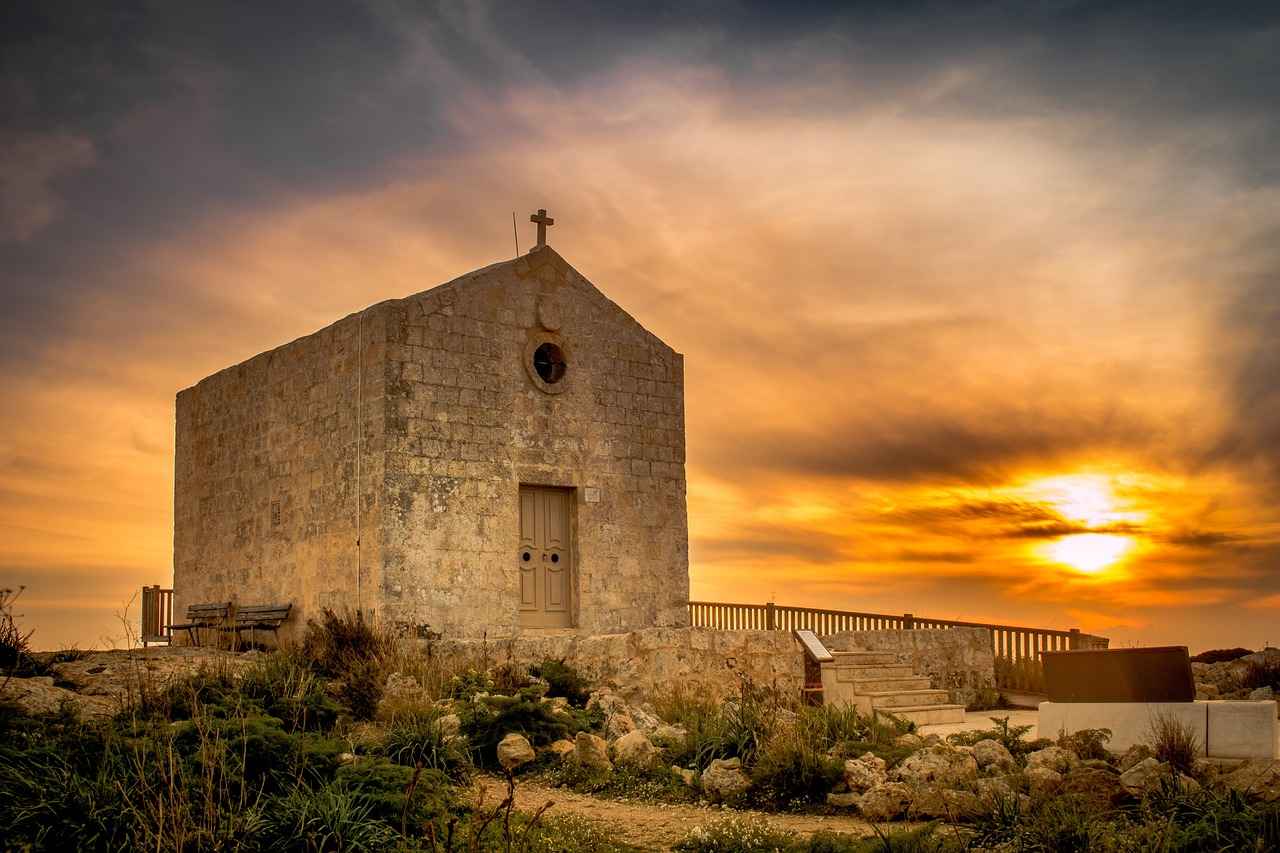
What Is the Significance of Cross Necklaces?
Cross necklaces have long been regarded as powerful symbols of faith, redemption, and the deep connection to spirituality. They transcend cultural boundaries and resonate with individuals from different backgrounds, serving as a reminder of one’s beliefs and the personal journey of faith. This article delves into the significance of cross necklaces and their impact on spiritual practices.
Cross necklaces are not merely fashion accessories; they embody profound meanings that can vary widely among different cultures and individuals. At their core, they symbolize the essence of Christianity, representing the sacrifice of Jesus Christ and the promise of eternal life. For many believers, wearing a cross serves as a daily reminder of their commitment to their faith and the teachings of Christ.
Moreover, cross necklaces can signify personal redemption and the transformative journey of spirituality. They often act as a source of comfort during difficult times, reminding the wearer of their inner strength and the support of a higher power. This connection to spirituality can be particularly significant in moments of doubt or struggle, providing a sense of hope and reassurance.
The significance of cross necklaces extends beyond Christianity. In various cultures, the cross or cross-like symbols have been used to represent concepts such as balance, protection, and life’s cycles. For instance, ancient civilizations utilized cross symbols to convey messages about fertility and cosmic harmony, emphasizing the universal appeal of this emblem.
In contemporary contexts, cross necklaces are embraced by individuals from diverse spiritual backgrounds. They may be worn as a fashion statement or a personal reminder of one’s beliefs, regardless of religious affiliation. This adaptability highlights the cross’s role as a symbol of unity and shared human experience, fostering connections among people with different faiths.
Cross necklaces come in a variety of styles, each carrying unique meanings. Some of the most popular include:
- Traditional Christian Crosses: These include the Latin cross and the Greek cross, each representing specific theological beliefs.
- Fashion Crosses: Often designed without religious significance, these pieces are more about aesthetics and personal style.
- Artistic Interpretations: Some necklaces feature intricate designs that blend cultural motifs with the cross, making them unique expressions of faith.
Wearing a cross necklace can serve as a powerful tool for enhancing one’s spiritual practice. It acts as a physical reminder of one’s beliefs and encourages reflection on personal faith. Many individuals find that seeing or touching their cross throughout the day helps them stay grounded and connected to their spiritual journey.
Additionally, cross necklaces can foster a sense of community among believers. When individuals wear similar symbols, it creates a bond that transcends differences, reinforcing a shared commitment to faith and spirituality. This communal aspect can be particularly comforting, as it reminds wearers that they are not alone in their beliefs.
Selecting the right cross necklace involves personal reflection and an understanding of its symbolism. Consider the following factors:
- Material and Design: The materials used, such as gold, silver, or wood, can influence the necklace’s meaning and personal significance.
- Personal Connection: Reflect on what the cross represents to you. This personal connection can deepen its significance in your spiritual journey.
In conclusion, cross necklaces hold a rich tapestry of meanings that resonate with individuals across cultures and religions. They are more than mere adornments; they are symbols of faith, hope, and connection to something greater than oneself. Whether worn as a declaration of belief or a personal reminder of one’s journey, cross necklaces continue to inspire and uplift those who wear them.
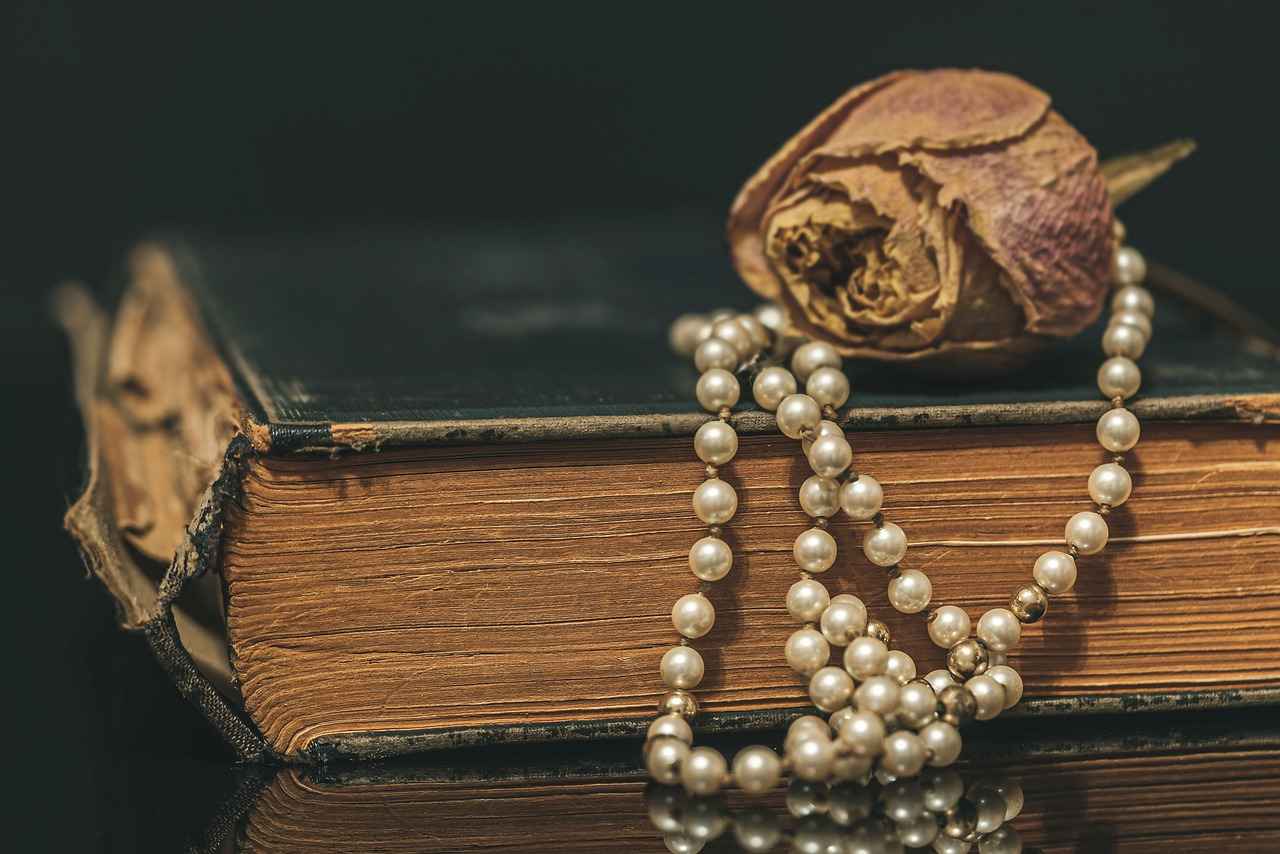
How Did Cross Necklaces Evolve Over Time?
The evolution of cross necklaces is a fascinating journey that mirrors the shifting landscapes of religious practices and cultural interpretations. Understanding this historical trajectory not only sheds light on their significance but also enriches our appreciation of their role in modern spirituality.
Cross necklaces have undergone significant transformations since their inception, reflecting the changing dynamics of faith and culture. Initially, the cross symbol was prevalent in various ancient civilizations, often representing universal themes such as life, death, and rebirth. For instance, in ancient Egypt, the ankh, a cross-like symbol, represented eternal life and was revered in spiritual contexts.
As Christianity emerged, the cross took on a new meaning. It became a powerful emblem of salvation and hope, symbolizing the sacrifice of Jesus Christ. This transition marked a pivotal moment in the evolution of cross necklaces, as they became widely adopted as personal symbols of faith. The early Christians wore crosses to signify their beliefs and to distinguish themselves from other religious groups.
Throughout the Middle Ages, the cross’s significance deepened, and it became a prominent feature in Christian art and architecture. Cross necklaces were often adorned with precious metals and gemstones, reflecting not only the wearer’s faith but also their social status. This period saw the rise of various styles of crosses, each carrying unique theological meanings. For example, the Latin cross became the most recognized symbol of Christianity, while the Greek cross represented the four corners of the earth, emphasizing the global reach of the Christian message.
In the modern era, cross necklaces have evolved further, transcending their religious roots to become symbols of personal identity and fashion. Today, many individuals wear cross necklaces not only as expressions of faith but also as fashion statements. The designs have diversified, ranging from traditional representations to contemporary interpretations that appeal to a broader audience.
This evolution reflects a broader trend in spirituality, where individuals seek to express their beliefs in ways that resonate with their personal journeys. Cross necklaces can now be found in various materials and styles, allowing wearers to choose pieces that align with their values and aesthetics. Some opt for minimalist designs, while others prefer elaborate, ornate pieces that showcase intricate craftsmanship.
Moreover, the cross has found a place in various cultural contexts beyond Christianity. In some indigenous and spiritual practices, cross-like symbols are used to represent balance, unity, and connection to the divine. This cross-cultural adoption highlights the universal appeal of the cross as a symbol of faith and spirituality.
In conclusion, the evolution of cross necklaces is a testament to the changing landscape of spirituality and cultural interpretation. From ancient symbols of life to modern expressions of personal faith, cross necklaces continue to hold profound significance in the lives of many. Understanding their historical journey enriches our appreciation of their role in contemporary spirituality, reminding us of the enduring power of symbols in expressing our beliefs.
Ancient Origins of the Cross
The cross is an emblem that transcends time and culture, with its origins tracing back to ancient civilizations long before the advent of Christianity. Its presence in various cultures speaks to a universal language of symbolism, representing fundamental themes of life, death, and rebirth. This article delves into the ancient roots of the cross, examining its significance across different cultures and how these meanings have evolved over millennia.
The cross has been a powerful symbol in many ancient cultures, often embodying concepts such as cosmic balance and spiritual protection. Archaeological evidence shows that various forms of the cross were used in rituals and as talismans, indicating its importance in early spiritual practices.
- Egyptian Cross (Ankh): The ankh, resembling a cross with a loop at the top, symbolized eternal life and was often depicted in the hands of deities.
- Celtic Cross: This cross combines Christian and pagan elements, representing the intersection of spirituality and earthly life.
- Swastika: Found in various ancient cultures including Hinduism and Buddhism, this symbol represents good fortune and well-being, showcasing the cross’s versatility in meaning.
With the rise of Christianity, the cross underwent a profound transformation. Initially a symbol of pagan rituals, it became the emblem of Christ’s sacrifice and a representation of salvation. This transition was pivotal, as it shifted the focus from broader spiritual meanings to a more defined religious significance.
Across various ancient societies, the cross was not merely a geometric shape but a representation of profound spiritual beliefs:
- In Mesopotamia, the cross symbolized the union of the heavens and the earth, acting as a bridge between the divine and the mortal.
- In Mesoamerican cultures, cross-like symbols were often associated with fertility and the cyclical nature of life.
Today, the ancient meanings of the cross continue to resonate. Many wear cross necklaces not only as expressions of faith but also as a connection to a rich tapestry of history. The diverse interpretations of the cross highlight its ability to adapt and find relevance in contemporary spirituality.
Exploring the ancient origins of the cross enriches our understanding of its significance today. By recognizing its multifaceted history, individuals can appreciate the depth of meaning behind this powerful symbol. Whether viewed through a religious lens or as a cultural artifact, the cross serves as a reminder of our shared human experience and the universal search for meaning.
Cross Symbols in Pre-Christian Cultures
The cross symbol has a rich and diverse history that extends far beyond its association with Christianity. Before its adoption as a central emblem of the Christian faith, various ancient cultures utilized cross-like symbols to convey profound meanings related to life, death, and the universe. Understanding these pre-Christian representations enriches our appreciation of the cross’s spiritual significance today.
In many ancient civilizations, the cross symbol was not merely a geometric shape but a powerful representation of cosmic balance, fertility, and protection. For instance, the ancient Egyptians used the ankh, a cross with a loop at the top, as a symbol of life and immortality. This emblem signified the connection between the physical and spiritual realms, embodying the belief in an afterlife.
- Mesopotamia: In Mesopotamian cultures, the cross symbol was often associated with the four cardinal directions, representing stability and the interconnectedness of the universe.
- Native American Traditions: Many Native American tribes used cross-like symbols to illustrate the four sacred elements: earth, water, fire, and air, emphasizing harmony and balance in nature.
- Indigenous African Cultures: In some African traditions, the cross symbol represented fertility and protection, often used in rituals to invoke blessings for crops and family.
The transition of cross symbols into Christian iconography illustrates how ancient meanings were reinterpreted over time. As Christianity emerged, the cross became a potent symbol of redemption and hope, transforming from a representation of cosmic balance into a sign of sacrifice and salvation. This shift reflects the adaptability of symbols and their ability to resonate with evolving spiritual beliefs.
Recognizing the historical context of cross symbols allows for a deeper understanding of their significance in modern spirituality. By appreciating the diverse meanings attributed to the cross in various cultures, individuals can find personal connections to these symbols that transcend religious boundaries. This historical awareness fosters a sense of unity among different faiths, highlighting the shared human experience of seeking meaning and connection.
Today, cross symbols continue to hold diverse meanings across various cultures and religions. While they are predominantly viewed through a Christian lens, many people wear cross necklaces as a form of personal expression, often disconnected from their original religious connotations. This evolution illustrates the cross’s enduring relevance as a symbol of faith, identity, and personal journey.
In conclusion, the exploration of cross symbols in pre-Christian cultures reveals a rich tapestry of meanings that have shaped their significance throughout history. By understanding these ancient representations, we can appreciate the cross’s multifaceted role in spirituality today, recognizing its ability to connect individuals across different beliefs and traditions.
Transition to Christian Symbolism
The transition of the cross into a central symbol of Christianity marked a profound change in its significance and cultural resonance. Initially, the cross was a mere instrument of execution, associated with suffering and death. However, with the advent of Christianity, it transformed into a powerful emblem of salvation, hope, and redemption. This metamorphosis not only altered the perception of the cross but also led to its widespread adoption in various forms of jewelry, particularly cross necklaces.
The evolution of the cross as a symbol of hope can be traced back to the foundational events of Christianity. Following the crucifixion of Jesus Christ, believers began to view the cross not just as a representation of suffering but as a gateway to eternal life. This shift in perspective emphasized the themes of forgiveness and divine love, making the cross an enduring symbol of faith.
The adoption of the cross in jewelry, especially in the form of necklaces, was influenced by several factors:
- Religious Significance: For many Christians, wearing a cross necklace serves as a personal declaration of faith, a reminder of Jesus’s sacrifice, and a symbol of their commitment to spirituality.
- Cultural Integration: As Christianity spread across different cultures, the cross was integrated into various artistic expressions, including jewelry. This cultural blending helped to solidify its status as a cherished symbol.
- Fashion Trends: In contemporary society, cross necklaces also gained popularity as fashion accessories, appealing to individuals regardless of their religious beliefs. This dual significance has further entrenched the cross in popular culture.
Cross necklaces come in a myriad of styles, each reflecting unique interpretations of the symbol:
- Traditional Christian Crosses: These include the Latin cross, Greek cross, and Celtic cross, each carrying distinct theological meanings.
- Stylized Crosses: Modern designs often incorporate artistic elements, making them appealing as fashion statements while still retaining their spiritual significance.
- Personalized Crosses: Many individuals choose to personalize their cross necklaces, adding initials or birthstones, which enhances their personal connection to the symbol.
Wearing a cross necklace can significantly enhance an individual’s spiritual journey. It serves as a constant reminder of one’s beliefs, encouraging reflection and commitment. For some, it is a source of comfort during challenging times, while for others, it represents a connection to a larger community of faith.
While the cross is predominantly associated with Christianity, its symbol has transcended religious boundaries. Various cultures have adopted cross-like symbols that represent different meanings:
- Hinduism: The swastika, often mistaken for a negative symbol in the West, represents good fortune and well-being.
- Buddhism: The dharma wheel, which resembles a cross, symbolizes the path to enlightenment.
This universality of cross-like symbols highlights the shared human experiences of seeking balance, protection, and spiritual connection.
When selecting a cross necklace, consider the following factors to ensure it resonates with your personal beliefs:
- Material: The choice of metal or material can influence the necklace’s meaning, with gold often symbolizing divinity and silver representing purity.
- Design: Reflect on what design speaks to you personally. A more ornate cross may denote a deeper connection to tradition, while a minimalist design might resonate with modern sensibilities.
- Intent: Understand your intention behind wearing the necklace. Is it a daily reminder of faith, a fashion statement, or a sentimental piece? This clarity can enhance its significance in your life.
Modern Interpretations of Cross Necklaces
Cross necklaces have evolved significantly over the years, becoming more than mere religious symbols. Today, they are worn by individuals from various backgrounds for a multitude of reasons. reflect a blend of personal beliefs, cultural influences, and fashion trends, making them a versatile accessory in contemporary society.
In the modern world, cross necklaces symbolize a variety of meanings. For many, they remain a profound expression of faith and spirituality, while others may wear them as a fashion statement or a token of personal significance. The multifaceted nature of these necklaces allows individuals to connect with their own beliefs and values.
While traditional cross necklaces are often associated with Christianity, many contemporary designs have emerged that focus more on aesthetics than on religious significance. Fashion crosses can be found in various styles, materials, and sizes, appealing to a wider audience. These pieces often feature intricate designs, gemstones, and unique shapes that cater to personal taste rather than spiritual meaning.
The meaning behind cross necklaces can vary greatly depending on individual backgrounds and cultural contexts. For some, wearing a cross necklace is a way to honor their heritage or to commemorate a significant life event, such as a baptism, confirmation, or personal milestone. This personal connection enhances the emotional value of the necklace, making it a cherished item.
Many individuals find that wearing a cross necklace serves as a daily reminder of their spiritual journey. Whether it is a conversation starter or a silent affirmation of faith, these necklaces can encourage wearers to reflect on their beliefs and values throughout the day. This practice can foster a deeper connection to one’s spirituality and inspire positive actions.
Cross necklaces have also made their mark in popular culture, often seen worn by celebrities and influencers. This visibility has contributed to their status as a fashion accessory, further blurring the lines between spiritual and aesthetic significance. The incorporation of cross necklaces into various fashion trends showcases their adaptability and enduring appeal.
When selecting a cross necklace, it is essential to consider what it represents to you personally. Think about the material, design, and overall aesthetic that resonates with your beliefs and style. Whether you prefer a simple gold cross or a more elaborate design adorned with gemstones, the choice should reflect your values and intentions.
The modern interpretation of cross necklaces showcases their evolution from traditional religious symbols to versatile accessories that speak to personal beliefs and fashion sensibilities. Whether worn for spiritual reasons or as a fashion statement, cross necklaces continue to resonate with individuals across the globe, reflecting a rich tapestry of meanings and cultural significance.
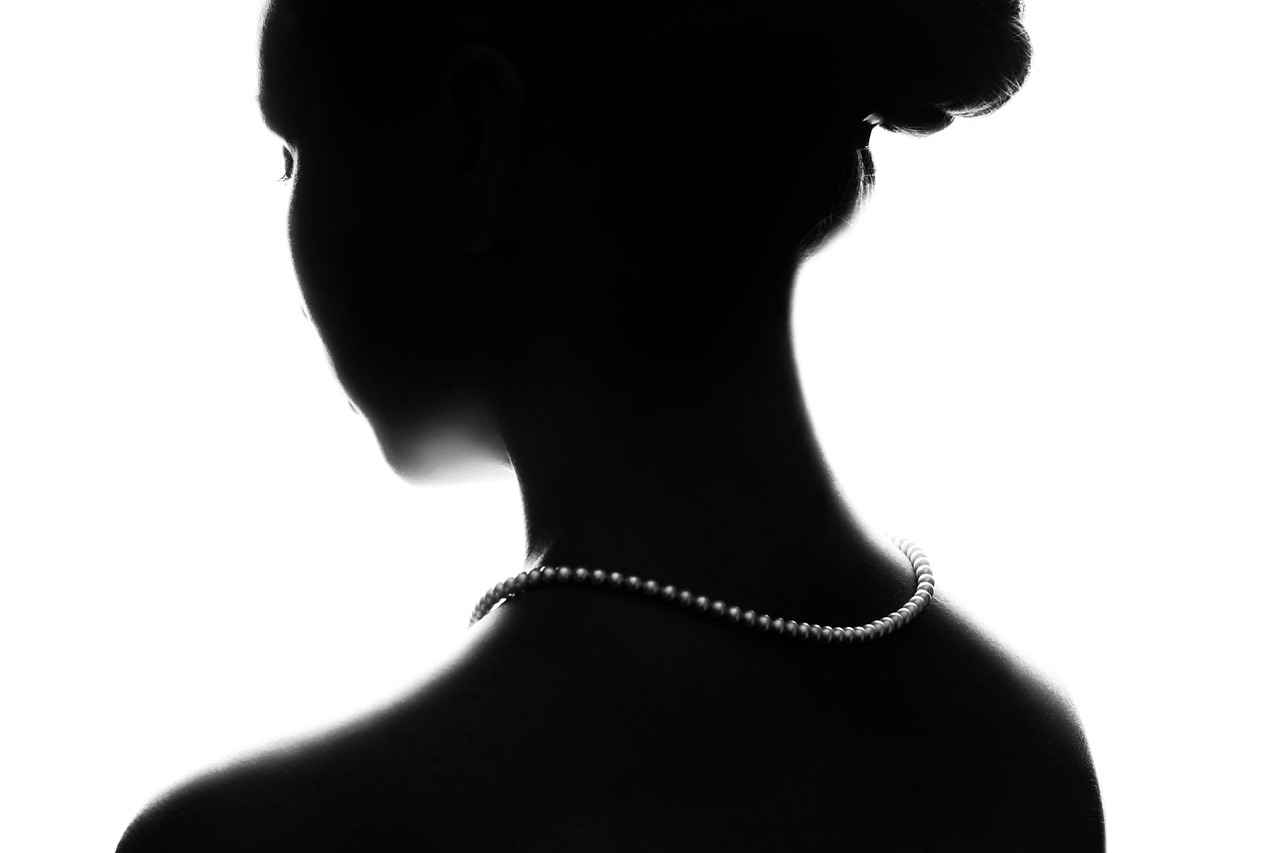
What Are the Different Types of Cross Necklaces?
When it comes to cross necklaces, the variety available can be both inspiring and overwhelming. Each type carries its own unique significance and can resonate differently with individuals based on their personal beliefs and spiritual journeys. Understanding these differences is essential for anyone looking to choose a piece that truly reflects their faith or style.
Cross necklaces come in a multitude of styles, each with its own symbolic meaning. Here, we explore some of the most popular types:
- Traditional Christian Crosses: These include the Latin cross, which is the most recognized symbol of Christianity, and the Greek cross, known for its equal arms. Each style embodies different theological beliefs and appeals to various denominations.
- Crucifix Necklaces: A crucifix features Jesus on the cross, serving as a poignant reminder of His sacrifice. This type is particularly significant for those who wish to express their deep faith and connection to the teachings of Christ.
- Celtic Crosses: With their intricate knot patterns and circular designs, Celtic crosses represent the intertwining of faith and life. They are often associated with Irish heritage and symbolize eternal life and the connection between heaven and earth.
- Orthodox Crosses: These crosses often have a unique design, featuring three bars. The top bar represents the inscription placed above Jesus, while the lower bar symbolizes the footrest. This style is significant in Eastern Orthodox Christianity.
- Fashion Crosses: These are primarily decorative and may not carry any religious significance. Fashion crosses can be made from various materials and are often designed to appeal to a broader audience, serving more as a fashion statement.
- Personalized Crosses: Many individuals opt for customized cross necklaces, which can include engravings or unique designs that hold personal meaning. This type allows for a deeper connection to the piece, making it a cherished item.
Choosing the right cross necklace involves more than just selecting a style; it requires personal reflection. Here are some factors to consider:
- Symbolism: Think about what the cross represents to you personally. Is it a reminder of faith, a connection to heritage, or simply a beautiful piece of jewelry?
- Material and Quality: Cross necklaces come in various materials, including gold, silver, and even wood. Consider what resonates with you and aligns with your lifestyle.
- Size and Design: The size of the cross and its design can impact how it is perceived. A larger, more ornate cross may stand out, while a smaller, simpler design may be more understated.
The popularity of cross necklaces can be attributed to their versatile nature. They are not only a representation of faith but also a fashion accessory that can be worn in various settings. Many people find comfort in wearing a symbol that connects them to their beliefs and values.
Additionally, cross necklaces are often given as gifts during significant life events such as baptisms, confirmations, or weddings, further solidifying their role in personal and communal spirituality.
Traditional Christian Crosses
Traditional Christian crosses, such as the Latin and Greek crosses, hold profound significance within the Christian faith. Each style represents unique theological beliefs and traditions, appealing to a wide range of followers. Understanding these differences can deepen one’s appreciation for the symbols worn by millions around the world.
The Latin cross, characterized by its long vertical beam intersected by a shorter horizontal beam, is the most recognized symbol of Christianity. It is often associated with the crucifixion of Jesus Christ, representing His sacrifice and the promise of salvation. On the other hand, the Greek cross features arms of equal length, symbolizing the universality of Christ’s message. This cross is often linked to the Eastern Orthodox Church and embodies a sense of balance and harmony in faith.
Each cross style resonates with different denominations and cultural interpretations. The Latin cross is predominantly used in Roman Catholicism and Protestantism, serving as a reminder of the central event in Christian theology—the crucifixion. Conversely, the Greek cross is prevalent in Eastern Orthodox traditions, symbolizing the unity of Christ’s teachings across the globe.
The Latin cross emphasizes themes of sacrifice and redemption. It serves as a powerful reminder of Jesus’s suffering and the hope of eternal life. In contrast, the Greek cross embodies the idea of divine presence in all aspects of life, reflecting a more holistic view of faith. Each cross style, therefore, not only serves as a decorative piece but also as a testament to the wearer’s beliefs and spiritual journey.
Cross necklaces are worn by individuals from various backgrounds. For many Christians, wearing a cross is a public declaration of their faith. It provides a sense of identity and belonging within the Christian community. Additionally, some people wear crosses for their aesthetic appeal, regardless of their religious beliefs. This duality highlights the cross’s versatility as a symbol.
The use of the cross as a symbol dates back to the early days of Christianity. Initially, it was a symbol of shame and execution, but over time, it transformed into a powerful emblem of hope and faith. Understanding this historical context enriches our appreciation for the cross and its significance in contemporary society.
Wearing a cross necklace can serve as a daily reminder of one’s spiritual commitments. It encourages wearers to reflect on their beliefs and the teachings of Christ. This practice can enhance personal faith and inspire individuals to live according to their values.
When selecting a cross necklace, consider the design, material, and symbolism that resonate with you. Each element can enhance the necklace’s significance in your life. For instance, a gold cross may symbolize purity and divinity, while a silver cross can represent humility and grace.
Wearing a cross necklace also fosters connections within faith communities. Shared symbols often create bonds among individuals, reinforcing a sense of belonging and shared beliefs. This communal aspect of wearing crosses can be particularly comforting in times of personal struggle or doubt.
In summary, traditional Christian crosses, such as the Latin and Greek crosses, are rich in meaning and significance. They embody specific theological beliefs that resonate with diverse followers, making them a powerful symbol of faith and community.
Fashion Crosses vs. Religious Crosses
When it comes to cross necklaces, there is a significant distinction between fashion crosses and religious crosses. This differentiation is crucial for individuals seeking to express their beliefs or personal style through jewelry. Understanding these differences can guide you in selecting pieces that genuinely resonate with your intentions.
Fashion crosses are typically designed for aesthetic appeal rather than spiritual significance. These accessories often feature unique designs, vibrant colors, and contemporary styles that cater to current fashion trends. While they may incorporate the shape of a cross, they lack the deeper meaning associated with religious symbols.
- Personal Style: Fashion crosses allow individuals to showcase their unique taste and personality.
- Trendy Appeal: Many fashion crosses are designed to align with seasonal trends, making them popular among fashion enthusiasts.
- Versatility: These pieces can be worn with various outfits, adding a stylish touch without conveying a specific religious message.
In contrast, religious crosses carry profound spiritual significance, particularly within Christianity. They serve as a reminder of faith, sacrifice, and the core beliefs of the religion. Wearing a religious cross necklace often signifies a personal commitment to one’s faith and can be a source of comfort and strength.
- Symbol of Faith: Religious crosses are powerful symbols representing the beliefs and values of Christianity.
- Connection to Spirituality: Wearing a religious cross can enhance one’s spiritual journey and remind them of their beliefs.
- Community Bonds: Religious crosses can foster connections within faith communities, reinforcing shared beliefs and values.
When selecting a cross necklace, consider the following factors to ensure it aligns with your intentions:
- Design Elements: Fashion crosses often feature intricate designs that may not adhere to traditional forms, while religious crosses typically maintain a classic shape.
- Material and Craftsmanship: Religious crosses may be crafted from more traditional materials such as gold or silver, whereas fashion crosses can use a variety of materials that prioritize style over meaning.
- Context of Wear: Consider whether you are wearing the cross for a specific religious occasion or simply as a fashion accessory.
Ultimately, the choice between a fashion cross and a religious cross depends on your personal beliefs and intentions. Reflect on what the cross symbolizes for you and how it fits into your lifestyle. Whether you opt for a fashionable piece or a meaningful religious symbol, ensure it resonates with your identity and values.
In conclusion, understanding the differences between fashion crosses and religious crosses is essential for making an informed choice. By considering the significance of each type, you can select a necklace that truly reflects your intentions and personal style.

What Is the Role of Cross Necklaces in Various Religions?
Cross necklaces are not merely decorative pieces of jewelry; they embody profound spiritual meanings across various religions. This article delves into the role of cross necklaces in different faiths, highlighting their significance and how they resonate with individuals on a personal level.
Cross necklaces hold a unique place in the spiritual landscape, serving as symbols of faith, hope, and connection. Each religion interprets the cross in its own context, leading to a rich tapestry of meanings that can enhance an individual’s spiritual journey.
In Christianity, the cross is a central symbol representing the sacrifice of Jesus Christ and the promise of salvation. Wearing a cross necklace often signifies a personal commitment to faith and acts as a reminder of divine love and grace. Many Christians believe that the cross serves as a protective emblem, offering spiritual strength and guidance in their daily lives.
While the cross is predominantly associated with Christianity, other religions also incorporate cross-like symbols that carry distinct meanings:
- Hinduism: In Hindu traditions, the Swastika is a symbol of good fortune and well-being, often mistaken for a cross due to its shape. It represents the cycle of life, death, and rebirth.
- Buddhism: The Dharma Wheel, while not a cross per se, has cross-like features and symbolizes the teachings of Buddha, guiding followers on their spiritual path.
- Ancient Cultures: Many ancient civilizations, such as the Egyptians and Celts, used cross symbols to denote cosmic balance and protection, showcasing the universal appeal of the cross throughout history.
For many individuals, cross necklaces transcend religious boundaries and embody personal beliefs and values. They can serve as:
- A Reminder of Spiritual Journey: Wearing a cross necklace can inspire reflection and mindfulness, encouraging individuals to contemplate their spiritual growth.
- A Connection to Community: Sharing a symbol like the cross can foster bonds within faith communities, reinforcing a sense of belonging and shared beliefs.
- A Fashion Statement: Some wear cross necklaces as a form of self-expression, blending personal style with spiritual significance.
Incorporating a cross necklace into daily life can enhance one’s spiritual practice in several ways:
- Daily Reminders: A cross necklace can act as a tangible symbol of faith, prompting wearers to reflect on their beliefs and values throughout the day.
- Encouragement in Challenges: During difficult times, the cross can serve as a source of comfort and strength, reminding individuals of their faith and the support of their spiritual community.
Selecting a cross necklace should involve personal reflection on its meaning. Considerations include:
- Material and Design: The choice of materials (gold, silver, wood) and design (traditional, modern) can influence the necklace’s significance and how it aligns with personal values.
- Personal Connection: Understanding what the cross represents to you can enhance its significance, making it a meaningful part of your spiritual journey.
In summary, cross necklaces serve as powerful symbols across various religions, offering insights into personal faith and community connections. Whether as a representation of Christian beliefs or as a universal symbol of spirituality, cross necklaces enrich the wearer’s journey and foster a deeper appreciation for their significance.
Christianity and the Cross Necklace
The cross necklace is not just a piece of jewelry; it is a profound representation of faith, love, and commitment in Christianity. For millions of believers, wearing a cross serves as a daily reminder of the teachings of Jesus Christ and his ultimate sacrifice for humanity. This article delves into the significance of the cross necklace within Christianity, exploring its historical roots, spiritual meanings, and the personal connections it fosters among believers.
In Christianity, the cross symbolizes the crucifixion of Jesus Christ, which is central to Christian beliefs about salvation and redemption. The act of Jesus dying on the cross is viewed as a profound expression of divine love, offering forgiveness and grace to all who believe. Thus, the cross serves as a powerful emblem of hope and renewal, reminding Christians of their faith and the promise of eternal life.
The evolution of the cross necklace as a popular symbol can be traced back to the early days of Christianity. Initially, the cross was a symbol of shame and suffering, but as Christianity spread, it transformed into a symbol of hope and victory over sin and death. Early Christians began to wear crosses as a sign of their faith, and over time, this practice became widespread. Today, cross necklaces are worn not only for their spiritual significance but also as a fashion statement, reflecting a blend of personal belief and style.
- Personal Faith: Many individuals wear cross necklaces to express their personal commitment to their faith. It serves as a reminder of their spiritual journey and the values they uphold.
- Symbol of Protection: Some believers view the cross as a protective symbol, believing it can ward off negativity and bring blessings into their lives.
- Connection to Community: Wearing a cross can also signify belonging to a larger faith community. It fosters connections with others who share similar beliefs and values.
Cross necklaces come in a variety of styles, each with its unique significance:
1. Latin Cross: The most recognized form, symbolizing the crucifixion of Jesus.2. Greek Cross: Features arms of equal length, representing the balance of divine and human nature.3. Celtic Cross: Incorporates intricate designs and knots, symbolizing eternity and the interconnectedness of life.4. Crucifix: Depicts Jesus on the cross, emphasizing his sacrifice and suffering.
Wearing a cross necklace can significantly enhance one’s spiritual practice. It serves as a daily reminder to reflect on one’s beliefs, encouraging wearers to engage in prayer, meditation, or acts of kindness. This tangible symbol of faith can inspire individuals to embody the teachings of Christ in their everyday lives, promoting a deeper connection to their spirituality.
Selecting the right cross necklace is a personal journey. Consider the following:
- Material: The choice of material—gold, silver, or other metals—can affect the piece’s significance and personal value.
- Design: The design should resonate with your beliefs and aesthetic preferences. Some may prefer simple designs, while others may opt for more elaborate styles.
- Meaning: Reflect on what the cross represents to you personally. Understanding its significance can deepen your connection to the piece.
Cross Symbols in Other Faiths
The significance of cross symbols extends beyond Christianity, resonating with various religious traditions around the world. Understanding these diverse interpretations enhances our appreciation for the cross’s universal appeal and spiritual depth.
Many religions, including Hinduism and Buddhism, utilize symbols that bear resemblance to the cross, each carrying unique meanings and cultural significance. This exploration reveals how the cross transcends religious boundaries, reflecting shared themes of spirituality and interconnectedness.
In Hinduism, the concept of the cross can be seen in the Swastika, an ancient symbol that represents auspiciousness and well-being. The Swastika, often depicted as a cross with arms bent at right angles, symbolizes the cycle of life, death, and rebirth. It embodies the principles of karma and dharma, which are central to Hindu beliefs.
- The Swastika signifies good fortune and prosperity.
- It represents the balance of spiritual energies in the universe.
- The symbol is often used in rituals and celebrations to invite positive energy.
In Buddhism, while the cross is not a traditional symbol, the concept of interconnectedness is crucial. The Dharmachakra, or the Wheel of Dharma, can be likened to a cross in its representation of the path to enlightenment. The spokes of the wheel symbolize the Eightfold Path that guides practitioners toward spiritual awakening.
- The Dharmachakra signifies the unity of all beings.
- It represents the cycle of birth and rebirth (samsara).
- This symbol emphasizes the importance of compassion and mindfulness in Buddhist practice.
The cross-like symbols found in various religions share common themes, such as balance, protection, and the cycle of life. These shared meanings illustrate the cross’s universal appeal, as it resonates with fundamental human experiences and spiritual aspirations.
- Many cultures view the cross as a bridge between the physical and spiritual realms.
- Cross symbols often embody the quest for inner peace and self-discovery.
- They serve as reminders of our shared humanity and the interconnectedness of all life.
Exploring the interpretations of cross symbols in Hinduism, Buddhism, and other faiths highlights their profound spiritual significance. These symbols not only reflect individual beliefs but also emphasize the shared values that unite diverse cultures. The cross’s universal appeal lies in its ability to inspire individuals on their spiritual journeys, fostering a deeper understanding of faith and connection across different traditions.
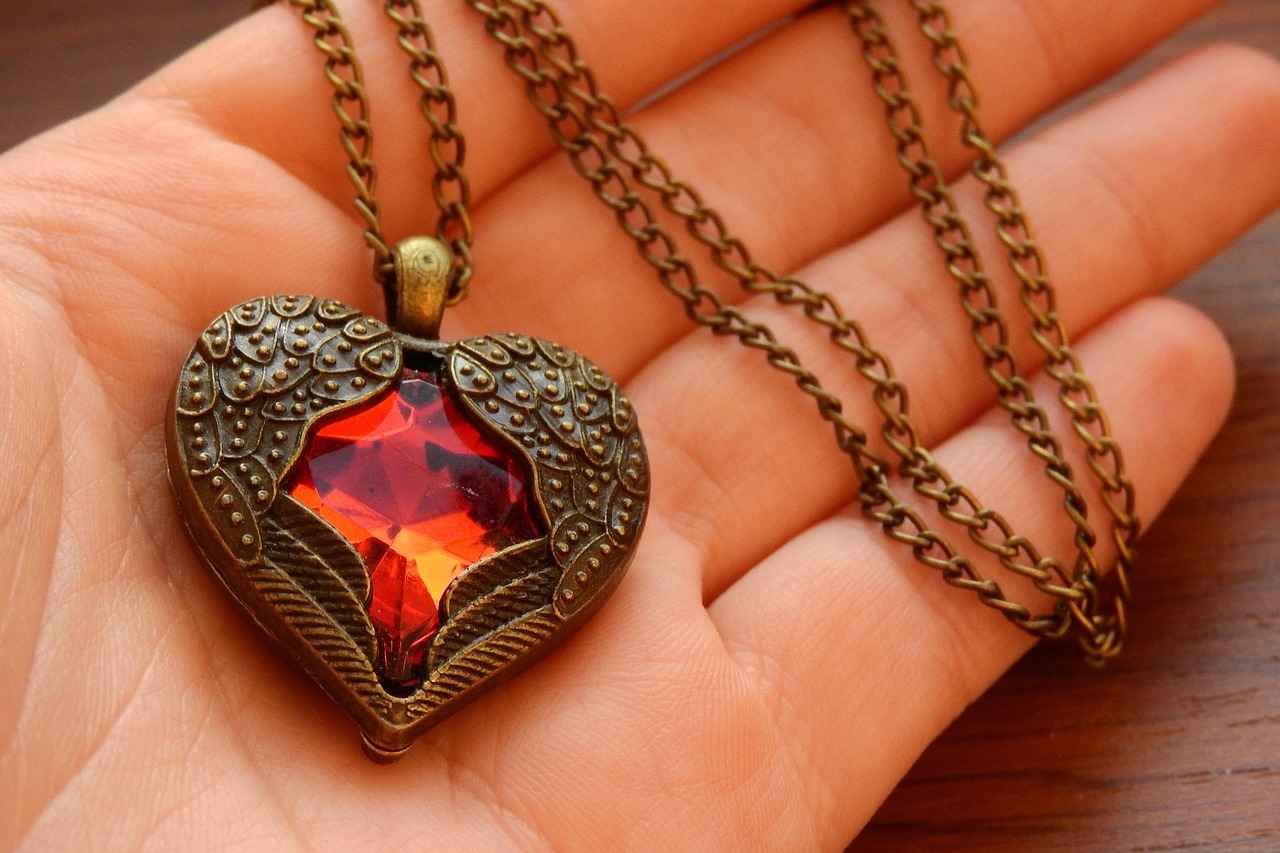
How Can Cross Necklaces Enhance Spiritual Practice?
Cross necklaces have long been cherished not only as beautiful pieces of jewelry but also as profound symbols of faith. Wearing a cross necklace can serve as a daily reminder of one’s spiritual commitments, enhancing personal faith and fostering a deeper connection to one’s beliefs. This article delves into how cross necklaces can enrich spiritual practices and the various ways they can impact daily life.
The act of wearing a cross necklace transcends mere fashion. For many, it is a visible expression of their beliefs and values. By donning this emblem, individuals often find themselves more attuned to their spiritual journey. The cross serves as a reminder of the teachings and sacrifices associated with their faith, encouraging reflection and mindfulness throughout the day.
- Encouragement for Reflection: Each glance at the cross can prompt moments of contemplation, allowing wearers to reflect on their values and actions.
- Inspiration for Positive Actions: The cross can motivate individuals to act in alignment with their beliefs, fostering kindness, compassion, and understanding in their interactions with others.
Wearing a cross necklace can also enhance one’s sense of belonging within a faith community. Shared symbols often create bonds among individuals, reinforcing a sense of unity and shared purpose. When people see a cross around someone’s neck, it can spark conversations about faith, spirituality, and shared experiences, strengthening communal ties.
Beyond serving as a reminder of faith, cross necklaces can play a role in personal development:
- Encouraging Spiritual Growth: By consistently wearing a cross, individuals may find themselves drawn to explore their spirituality more deeply, seeking knowledge and understanding that can lead to growth.
- Facilitating Mindfulness: The presence of a cross can help individuals stay grounded and present, encouraging them to practice mindfulness in their daily lives.
When selecting a cross necklace, it’s essential to consider its significance in relation to your personal beliefs:
- Symbolism: Different styles of crosses may resonate differently based on personal or cultural significance. Understanding the meanings associated with various designs can enhance the necklace’s impact.
- Material and Craftsmanship: The materials used in creating the cross necklace can also influence its spiritual meaning. For instance, a handcrafted piece may carry a unique energy compared to mass-produced alternatives.
To fully realize the benefits of wearing a cross necklace, consider integrating it into your daily routine:
- Morning Rituals: Start your day by taking a moment to touch your necklace, setting intentions for the day ahead.
- Evening Reflections: At the end of the day, reflect on how your actions aligned with your beliefs, using the cross as a focal point for gratitude and self-assessment.
In summary, cross necklaces serve as powerful tools for enhancing spiritual practice. They act as constant reminders of faith, encouraging reflection, personal growth, and community connection. By thoughtfully choosing and wearing a cross necklace, individuals can deepen their spiritual journeys and cultivate a meaningful connection with their beliefs.
Daily Reminders of Faith
play a crucial role in the spiritual lives of many individuals. Among the various tools available for this purpose, cross necklaces stand out as powerful symbols of belief and devotion. These necklaces serve not only as personal adornments but also as constant reminders of one’s spiritual journey and commitments.
Wearing a cross necklace can encourage wearers to pause and reflect on their faith throughout the day. Each time the necklace is seen or touched, it can evoke thoughts of spiritual growth, love, and the teachings that guide one’s life. This simple act can transform mundane moments into opportunities for introspection and connection with a higher power.
The presence of a cross necklace can inspire individuals to act in ways that align with their beliefs. For instance, when faced with challenges, a wearer might recall the values represented by the cross, such as forgiveness, compassion, and hope. This reflection can motivate them to respond positively, reinforcing their commitment to live out these principles in daily interactions.
Cross necklaces can enhance various spiritual practices, such as prayer and meditation. When worn during these activities, they can deepen focus and intention, serving as a tactile connection to one’s faith. Holding the necklace can also provide comfort and reassurance, reminding the wearer of their spiritual foundation and the support of their beliefs.
Beyond personal reflection, cross necklaces can also create bonds within faith communities. When individuals wear similar symbols, it fosters a sense of belonging and shared values. This communal aspect can be particularly powerful during religious gatherings or events, where the collective display of faith strengthens connections among participants.
As wearers don their cross necklaces, it’s essential to engage in personal reflection. Consider what the cross represents in your life and how it aligns with your spiritual journey. This introspection can deepen the significance of the necklace, transforming it from a mere accessory into a profound symbol of faith and identity.
Cross necklaces can carry various meanings depending on individual beliefs and cultural contexts. For some, it symbolizes a personal relationship with God, while for others, it represents a commitment to community and service. Understanding these meanings can enrich the experience of wearing a cross necklace, making it a more meaningful part of daily life.
Incorporating a cross necklace into daily routines can also promote mindfulness. The act of wearing the necklace can serve as a reminder to stay present and aware of one’s thoughts and actions. This practice encourages individuals to align their daily behaviors with their spiritual beliefs, fostering a more intentional approach to life.
In conclusion, cross necklaces are more than just decorative items; they are profound symbols that can enhance one’s spiritual journey. By serving as daily reminders of faith, inspiring positive actions, fostering community connections, and encouraging personal reflection, these necklaces hold significant value in the lives of those who wear them.
Connecting with Community Through Symbols
Wearing a cross necklace serves as more than just a personal expression of faith; it plays a significant role in fostering connections within faith communities. Shared symbols, such as the cross, create bonds among individuals, reinforcing a sense of belonging and shared beliefs. This connection is especially crucial in today’s world, where community support can greatly enhance one’s spiritual journey.
Symbols are powerful tools that convey meaning and foster unity. In faith communities, they serve as a visual representation of shared beliefs and values. The cross, in particular, symbolizes not only faith but also the collective experiences of believers. When individuals wear a cross necklace, they participate in a tradition that transcends individualism, reinforcing their connection to a larger community.
The act of wearing a cross necklace can promote unity in several ways:
- Shared Identity: Individuals who wear crosses often feel a sense of camaraderie with others who do the same. This shared identity fosters friendships and support networks.
- Visual Affirmation: The cross acts as a visual affirmation of one’s beliefs. When members of a faith community see others wearing the cross, it reinforces their shared commitment to their faith.
- Encouragement and Support: Cross necklaces can serve as conversation starters, allowing individuals to share their faith journeys and experiences, thus encouraging mutual support within the community.
In many faith communities, cross necklaces are worn during communal activities such as worship services, prayer meetings, and charity events. These occasions provide opportunities for members to come together and strengthen their bonds. Wearing a cross during such events can:
- Enhance Worship Experience: The presence of shared symbols during worship can deepen the experience and create a more profound sense of togetherness.
- Facilitate Group Discussions: Cross necklaces can lead to discussions about faith, spirituality, and personal experiences, fostering deeper connections among members.
- Promote Community Outreach: When individuals wear their cross necklaces while engaging in community service, they visually represent their faith in action, encouraging others to join in.
Absolutely! Wearing a cross necklace can help individuals connect with others who share similar values and beliefs. This can be particularly beneficial in new environments, such as:
- New Churches or Faith Groups: A cross necklace can signal to others that you are part of the same faith community, opening doors for new friendships.
- Social Gatherings: In social settings, wearing a cross can attract like-minded individuals, facilitating conversations about faith and spirituality.
- Online Communities: Many people wear cross necklaces while participating in online forums or social media groups focused on faith, further expanding their community connections.
In conclusion, wearing a cross necklace is a powerful way to connect with others within faith communities. It fosters a sense of belonging and shared identity, encourages support and encouragement, and promotes unity during communal activities. Whether in person or online, the cross serves as a reminder of the collective journey of faith that binds individuals together.
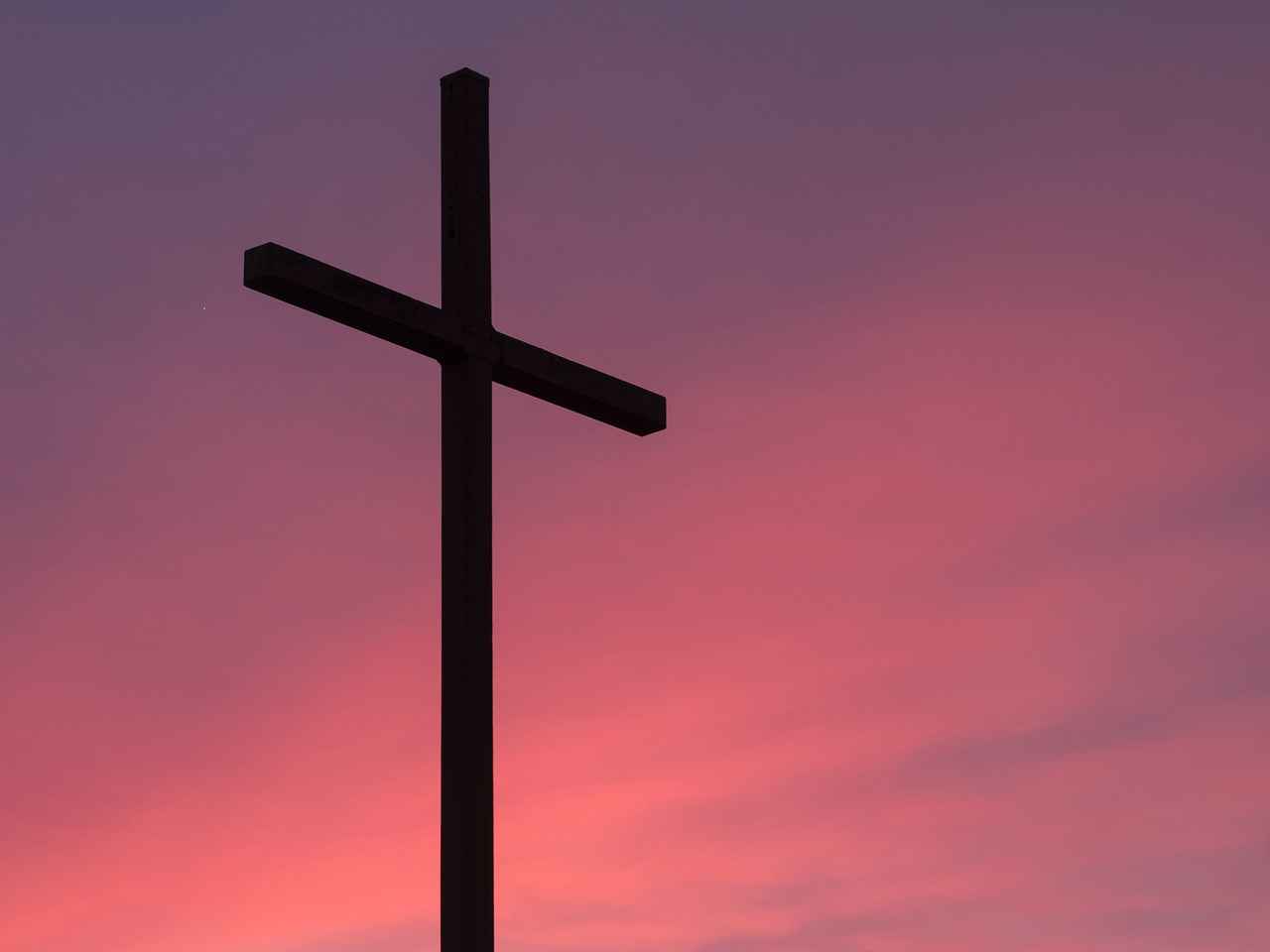
What Should You Consider When Choosing a Cross Necklace?
Choosing a cross necklace is a deeply personal journey that involves careful consideration of its symbolism and how it resonates with your individual beliefs. It is not merely a piece of jewelry; it represents a connection to spirituality and faith. Understanding what the cross means to you can significantly enhance its value in your life.
Personal reflection is vital in selecting a cross necklace because it allows you to connect with the symbolism behind the piece. The cross can symbolize different things to different people, such as faith, hope, and redemption. By contemplating what the cross signifies for you, you can choose a necklace that genuinely embodies your beliefs and values.
Different crosses have varied meanings. For instance, a traditional Christian cross may symbolize the sacrifice of Jesus Christ, while a Celtic cross might represent eternal life. When selecting a necklace, ask yourself: What do I want this piece to signify? This question can guide your choice and ensure that the necklace aligns with your spiritual journey.
The materials used in crafting a cross necklace can also influence its significance. For example, a gold cross may symbolize purity and divinity, while a silver cross might represent humility and grace. Additionally, the design—whether ornate or minimalist—can reflect your personal style and beliefs. Consider what materials and designs resonate with you, as these elements can enhance the necklace’s spiritual meaning.
Understanding the cultural context of cross necklaces is crucial. While the cross is predominantly associated with Christianity, various cultures have their interpretations of cross-like symbols. For instance, ancient Egyptian and Native American cultures utilized cross symbols to represent balance and harmony. By considering these cultural dimensions, you can choose a necklace that not only resonates with your faith but also acknowledges the broader significance of the cross.
Personalization is another way to enhance the significance of your cross necklace. Many jewelers offer options to engrave names, dates, or meaningful phrases on the back of the cross. This added touch can make the necklace even more special and reflective of your personal journey. Think about what words or symbols could add depth to your piece.
The size and length of the cross necklace can also impact its visibility and the statement it makes. A larger cross may draw attention and signify a bold expression of faith, while a smaller, more delicate piece may serve as a subtle reminder of your beliefs. Consider where you plan to wear the necklace and how visible you want it to be when making your choice.
Your lifestyle should also play a role in your decision-making process. If you lead an active lifestyle, a more durable material might be necessary to withstand wear and tear. Conversely, if you prefer to wear the necklace on special occasions, you might opt for a more intricate design. Reflect on how the necklace will fit into your daily life to ensure it remains a meaningful and practical accessory.
Material and Design Choices
When it comes to choosing a cross necklace, the material and design play a crucial role in its spiritual meaning and personal significance. Understanding how these elements influence the overall message of the necklace can help individuals select pieces that resonate with their beliefs and aesthetic preferences.
The material used in a cross necklace can greatly affect its spiritual significance. Different materials carry unique meanings and energies that can enhance the wearer’s connection to their faith. For example:
- Gold: Often associated with purity and divinity, gold cross necklaces symbolize eternal faith and the divine light of God.
- Silver: Known for its reflective properties, silver represents clarity and truth, making it a popular choice for those seeking a deeper understanding of their spirituality.
- Wood: Crosses made from wood can evoke a sense of nature and simplicity, representing humility and grounding in one’s beliefs.
- Gemstones: Incorporating gemstones can add layers of meaning, as each stone has its own properties. For instance, amethyst is believed to promote spiritual wisdom, while turquoise is known for its healing properties.
The design of a cross necklace can also convey different messages and reflect personal beliefs. Various styles can resonate differently with individuals, including:
- Traditional Crosses: Classic designs often represent deep-rooted faith and connection to Christian traditions.
- Artistic Crosses: More contemporary or artistic designs may reflect an individual’s unique journey and interpretation of spirituality.
- Symbolic Crosses: Crosses that incorporate additional symbols, such as hearts or doves, can represent love, peace, and hope.
When selecting a cross necklace, it is essential to reflect on both the material and design to ensure they align with your personal values and aesthetic preferences. Consider the following:
- Your Beliefs: What does the cross symbolize for you? Understanding your personal connection can guide your choice.
- Aesthetic Appeal: Choose a design that resonates with your style. A necklace you love to wear can serve as a daily reminder of your faith.
- Durability: Consider how often you intend to wear the necklace. Some materials are more durable and suitable for everyday wear, while others may be more delicate.
Ultimately, the choice of material and design in a cross necklace is a deeply personal decision that can enhance your spiritual journey. By understanding the significance of these elements, you can find a piece that not only complements your style but also serves as a meaningful symbol of your faith.
Personal Connection and Meaning
When selecting a cross necklace, it is essential to engage in personal reflection regarding its meaning. The cross is not merely a piece of jewelry; it is a symbol that can hold profound significance in one’s spiritual journey. By understanding what the cross represents to you personally, you can enhance its importance and role in your life.
Choosing a cross necklace requires more than just aesthetic considerations. It is an opportunity to delve into your beliefs and values. The cross can symbolize various concepts, including faith, sacrifice, and hope. Reflecting on these aspects allows you to select a necklace that aligns with your spiritual path.
The meaning of the cross can differ significantly among individuals. For some, it may represent the sacrifice of Jesus Christ and the promise of eternal life. For others, it could symbolize personal struggles and triumphs. Consider the following questions to guide your reflection:
- What does faith mean to you?
- How have your experiences shaped your understanding of sacrifice?
- In what ways do you seek hope and inspiration in your daily life?
Your personal journey is unique, and it can significantly influence your choice of a cross necklace. If you have faced challenges or have undergone significant changes, you may wish to choose a design that resonates with those experiences. For example, a simple cross may represent humility and faith, while a more ornate design could symbolize the richness of your spiritual journey.
The materials and designs of cross necklaces can also impact their meaning. Consider the following:
- Gold and Silver: Often symbolize purity and value, representing the preciousness of faith.
- Wooden Crosses: May evoke a sense of natural simplicity and connection to the earth.
- Gemstone Inlays: Can add a personal touch, representing specific qualities or virtues you value.
Wearing a cross necklace can serve as a daily reminder of your spiritual commitments. It can encourage you to reflect on your beliefs and inspire positive actions throughout the day. Additionally, it can create a sense of connection with others who share similar values, fostering community and belonging.
As you contemplate the purchase of a cross necklace, remember that it should resonate with your personal beliefs and experiences. Take your time to explore different styles, materials, and meanings. Engaging in this reflective process can lead to a more meaningful choice, ensuring that your cross necklace serves as a powerful symbol of your faith and personal journey.
Frequently Asked Questions
- What is the spiritual significance of wearing a cross necklace?
A cross necklace symbolizes faith, redemption, and a personal connection to spirituality. It serves as a daily reminder of one’s beliefs and the journey of personal faith, often bringing comfort and strength.
- How do I choose the right cross necklace for my personal beliefs?
Choosing the right cross necklace involves reflecting on its symbolism and how it resonates with you. Consider the material, design, and what the cross represents in your spiritual journey to find a piece that feels meaningful.
- Are all cross necklaces religious?
No, not all cross necklaces carry religious significance. Some are designed purely as fashion accessories, while others are deeply rooted in spiritual beliefs. Understanding the difference can help you select a piece that aligns with your intentions.
- Can wearing a cross necklace enhance my spiritual practice?
Absolutely! Wearing a cross necklace can serve as a daily reminder of your spiritual commitments, helping to strengthen your beliefs and inspire positive actions throughout your day.
- What types of cross necklaces are available?
Cross necklaces come in various styles, including traditional Christian crosses like the Latin and Greek crosses, as well as fashion crosses that may lack religious significance. Each type carries unique meanings, so choose one that resonates with you.
